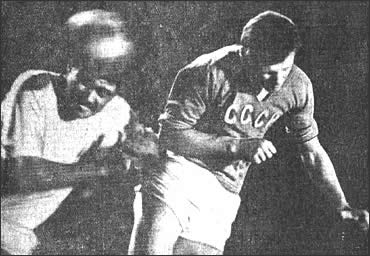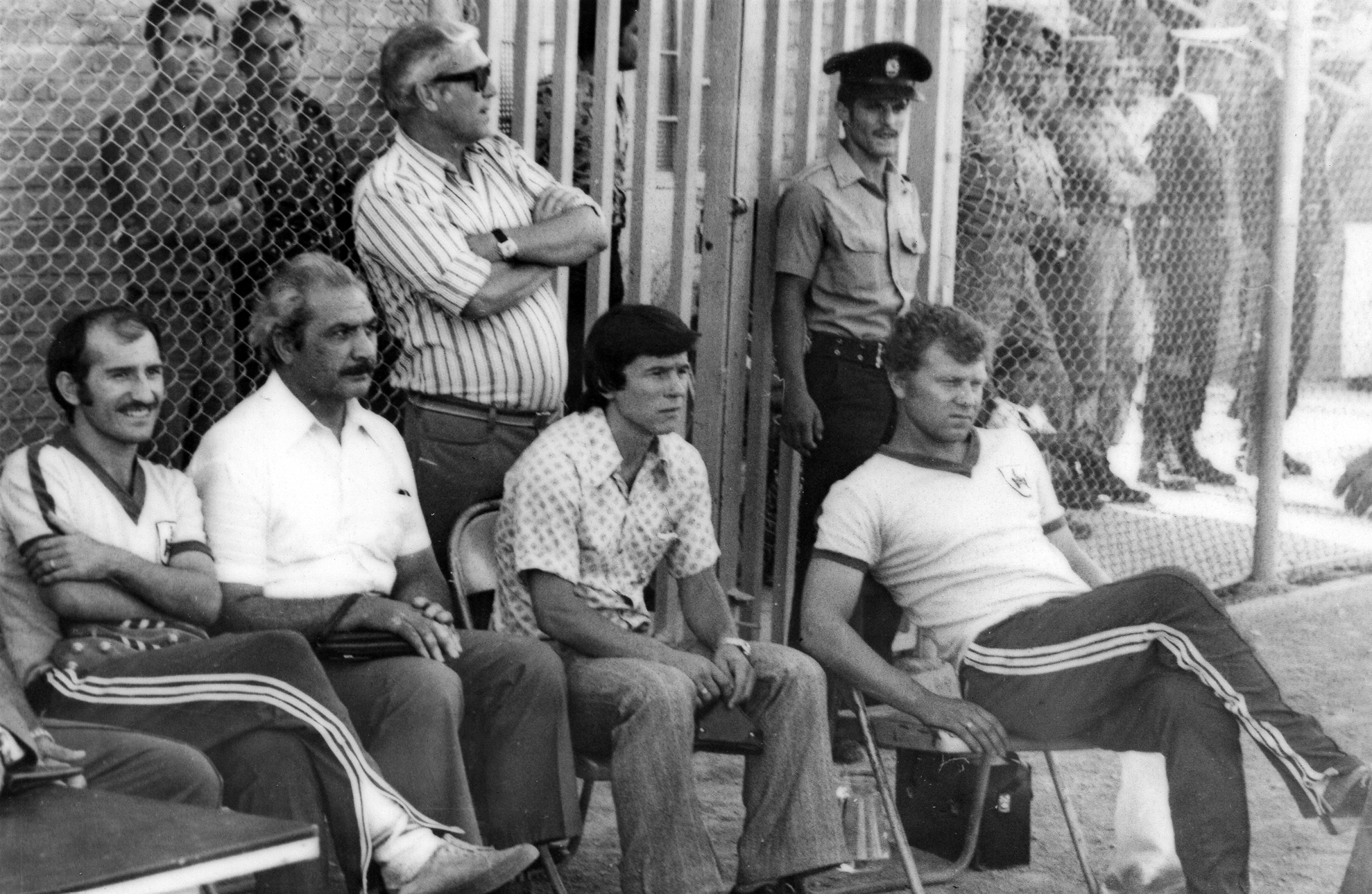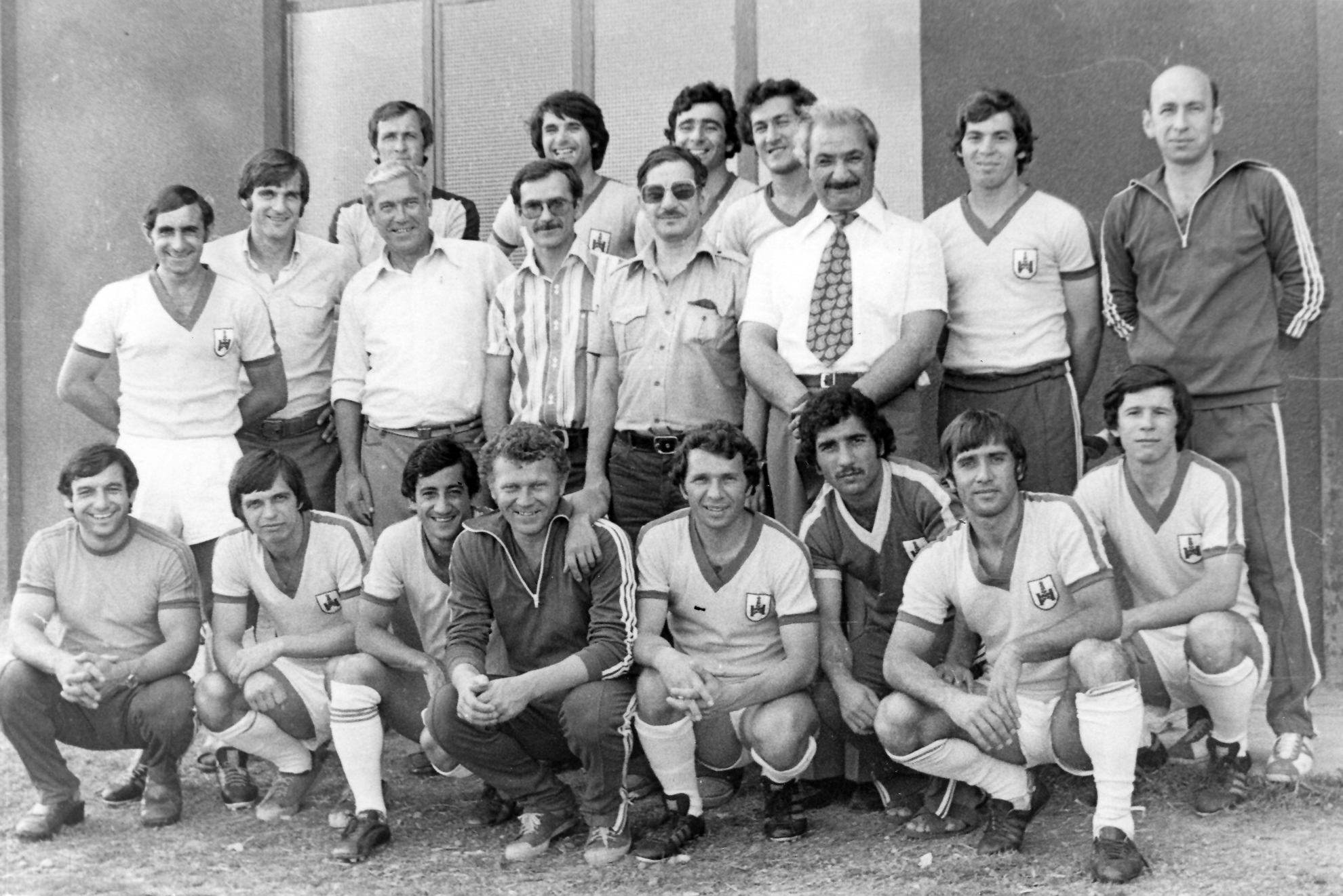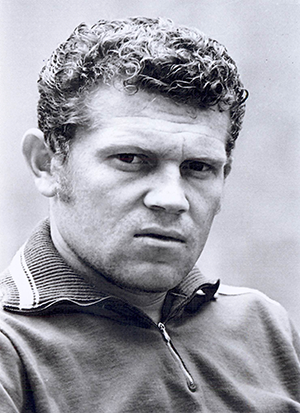
Anatoliy Banishevskiy
-
Played period:
1964-1978
-
Date of birth:
23.02.1946
-
Position:
Center-forward
-
Citizenship:
Azerbaijan
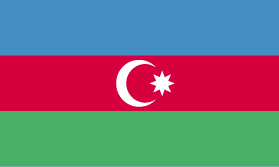
The name of this prominent football player is forever written in golden letters in the history of Baku's "Neftchi" team. The fate of his life was very controversial. He suffered many hardships and obstacles in his life. However, he was angered by the fearsome bosses, played even when he lost sight of them, was always the hope and support of his teammates, and sometimes came to the aid of the team in the most desperate situations. Even when he reached the pinnacle of football, he was a "Banish" for simple, Baku fans. Not only did he resent the nickname, but he was always in touch with the fans.
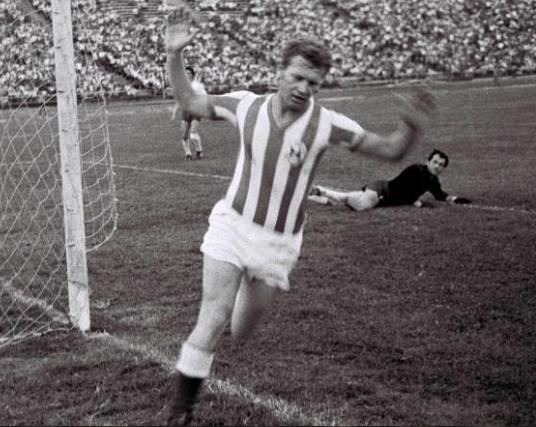
Like most Baku boys, he was crazy to play ball until he died. His pants were always torn from kicking the ball in the narrow neighborhood and on the streets, and after the blows the windows of the neighboring houses were broken. Each time he was reprimanded, he blushed and lowered his head, saying that this would never happen again. But the next day everything was forgotten, all events were repeated. Seeing his great love for football, his older brother took him to the sports school of the Locomotive Society. Little Anatoly begins to learn the first secrets of football in this society. Here, too, he stood out from his peers and played beautiful football.
Banishevsky's first acquaintance with big football was in 1962. The final matches of the championship of the Azerbaijan SSR were held. After the next Lokomotiv match, someone came to the locker room and said briefly, “I need you. "You will play for Neftchi." This person was Boris Arkadyev, a well-known football specialist of the USSR and then head coach of Neftchi. The next day, in front of Arkadyev, stood a thin boy, half-dressed and emaciated. "Soon this guy will be a famous football player," said the head coach of Neftchi, looking around. People around looked at the head coach in surprise and could not help but mock. However, later events showed that Arkadyev was right.
It was known how the 15-year-old felt after the incident. Thus, Banishevsky came to big football and was accepted as a substitute for Neftchi. He was soon called up to the USSR junior national team. Anatoly made his debut for Neftchi in 1964 against Dinamo (Minsk). As fate would have it, he replaced another well-known Baku striker Yuri Kuznetsov. Anatoly was able to speak for himself from the very first game. In the second match, he opened the scoring by passing the ball through the gates of OMIK. It was not long before he was called up to the USSR national team. In 1965, head coach Nikolai Morozov risked releasing the 19-year-old striker in a friendly against Brazil. Banishevsky soon became famous in the Soviet Union. The capital's clubs already wanted to see him in their squads. The young striker did not want to change his native Baku. This angered the football officials in the center. One of them even said: "It is difficult to get a team from the province, and in the capital you are in the spotlight." But Anatoly did not leave his hometown. He joined the USSR team, showing the strength of his talent to officials who considered Baku a province. At the 1966 World Cup in England, Banishevsky became a well-known footballer not only in the USSR, but all over the world. Only 11 players from a great country like the USSR won a bronze medal at the World Cup, one of which went to Banishevsky. During the award ceremony, Queen Elizabeth II of the United Kingdom personally said to him: "As important as Baku oil is for the USSR, your goals are as important for your team."
During the farewell party of the World Cup, the head of one of the English clubs offered Anatoly to sign a two-year contract for a large sum. However, the head of the club did not like the inexperienced young man not answering. Although many players were named "Honored Masters of Sports" after this success, Banishevsky was named "Master of Sports of International Class". That same year, Anatoly won his second bronze medal at his home club. Although Banishevsky played few games for Neftchi that year, he was able to support his teammates during his time on the field. Suffice it to say that he scored 12 goals in 14 games.
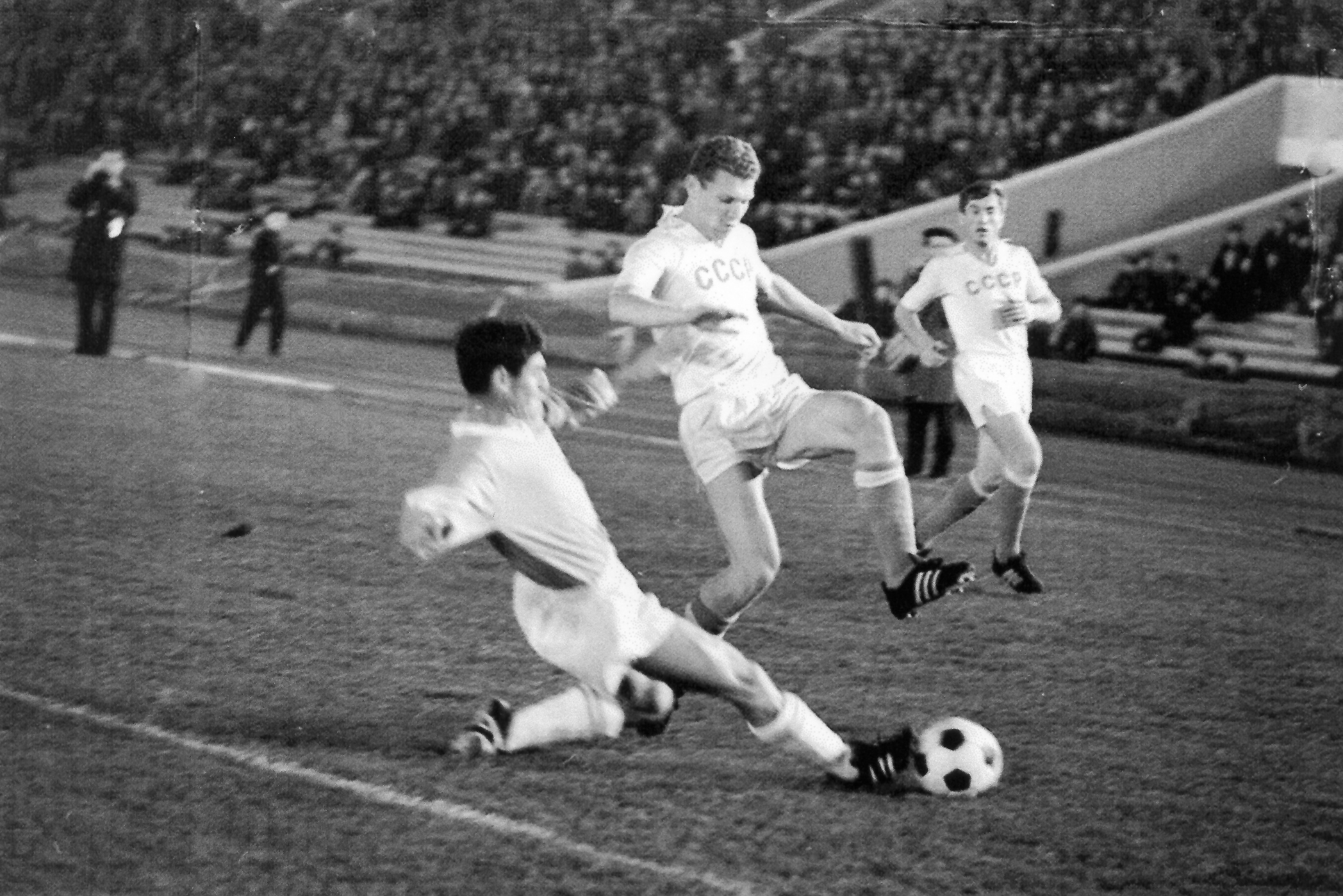
Along with his brilliant football career, he was always followed by setbacks. Some officials did not like the attacker's fame. Anatoly's lack of discipline led to unpleasant incidents. The incident at the Baku airport in the late 1960s left a deep mark on his life. Banishevsky was stripped of the title of "master of sports" and "master of sports of international class" after an argument with a high-ranking official at the airport.
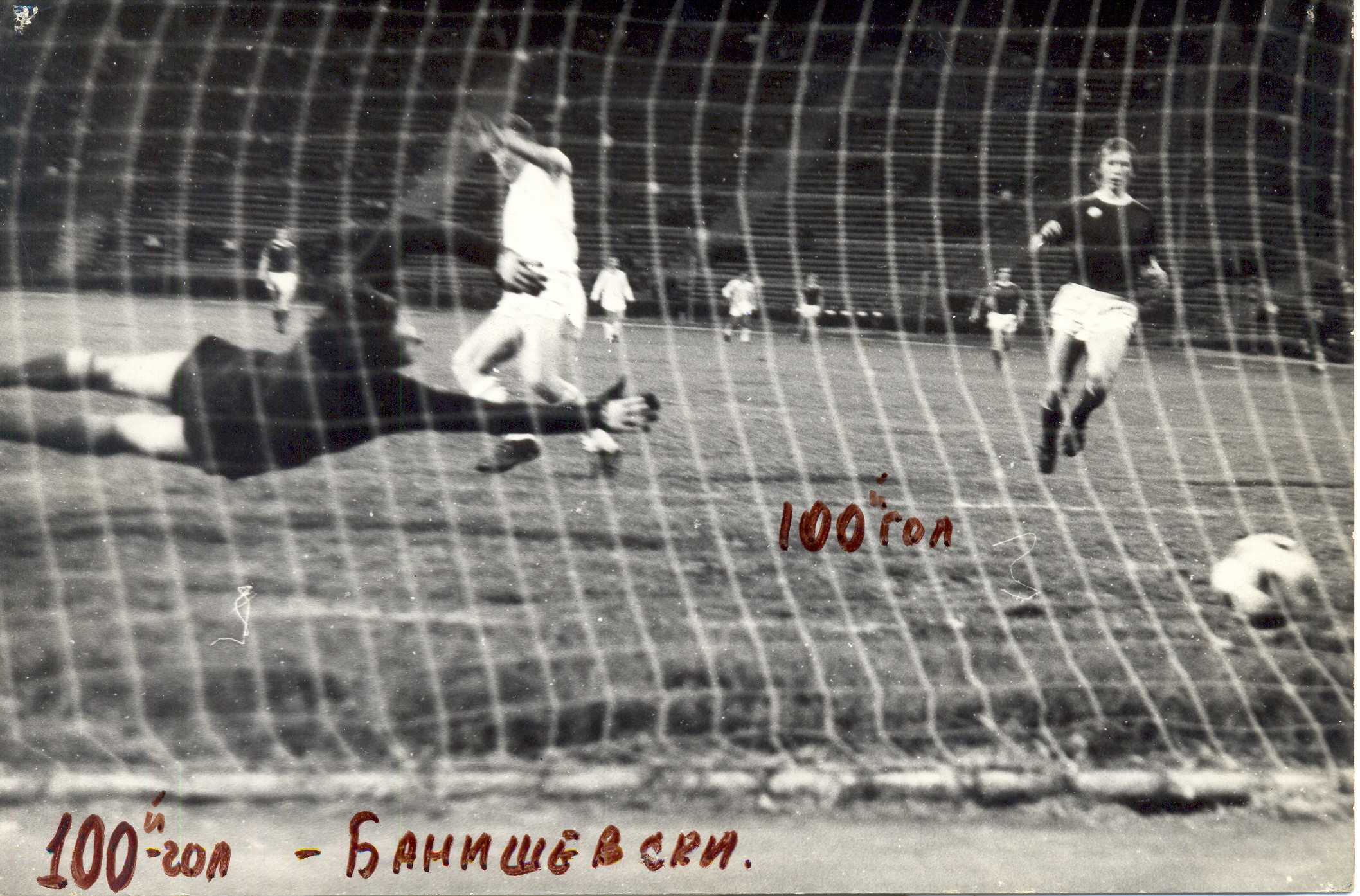
Nevertheless, Anatoly was called up to the USSR national team again, showing his skills on the green. However, his second arrival to the national team did not last long. Banishevsky fell into trouble again. After the final match of the European Championship in Belgium in 1972 between the USSR and Germany (0: 3), a Union-scale official entered the locker room and began to insult the players. Unable to bear the insult, Anatoly immediately replied: "Why did you sit and watch from the sidelines, go out and play on the field yourself." Banishevsky's response put an end to his national team career. Neftchi was already losing its former glory. He became more of a center of intrigue than a football club. Even in this situation, Anatoly was the real leader of the team. After Nefichi left the top flight in 1972, many players left the team. However, Banishevsky was able to stay in the team and follow the young players. He said goodbye to football for the first time in 1974 and left Neftchi. However, his love for the sport did not keep him away from football, and Anatoly began to coach. After working in Sumgayit for a year, he returned to Neftchi in 1975 as a coach. Head coach Valentin Khlistov asked Banishevsky to return to the green and follow the young players. Thus, in the second round of 1975, Anatoly began to play for Neftchi again. The following year, he and his teammates qualified for the top flight. The footballer, who lived his second youth, played in the strongest team for two years. Thanks to the goal he scored in the game with "Dnepr" on October 15, 1978, he was able to become a member of the strikers' club "G. Fedotov". The next game with Dynamo Kyiv was the last in Banishevsky's football career. Unable to leave football, Anatoly graduated from the Higher Coaching School in Moscow and worked as a coach in his native team in 1981-1982. Then he became the head coach of Mingachevir's "Avtomobilchi" team for a while.
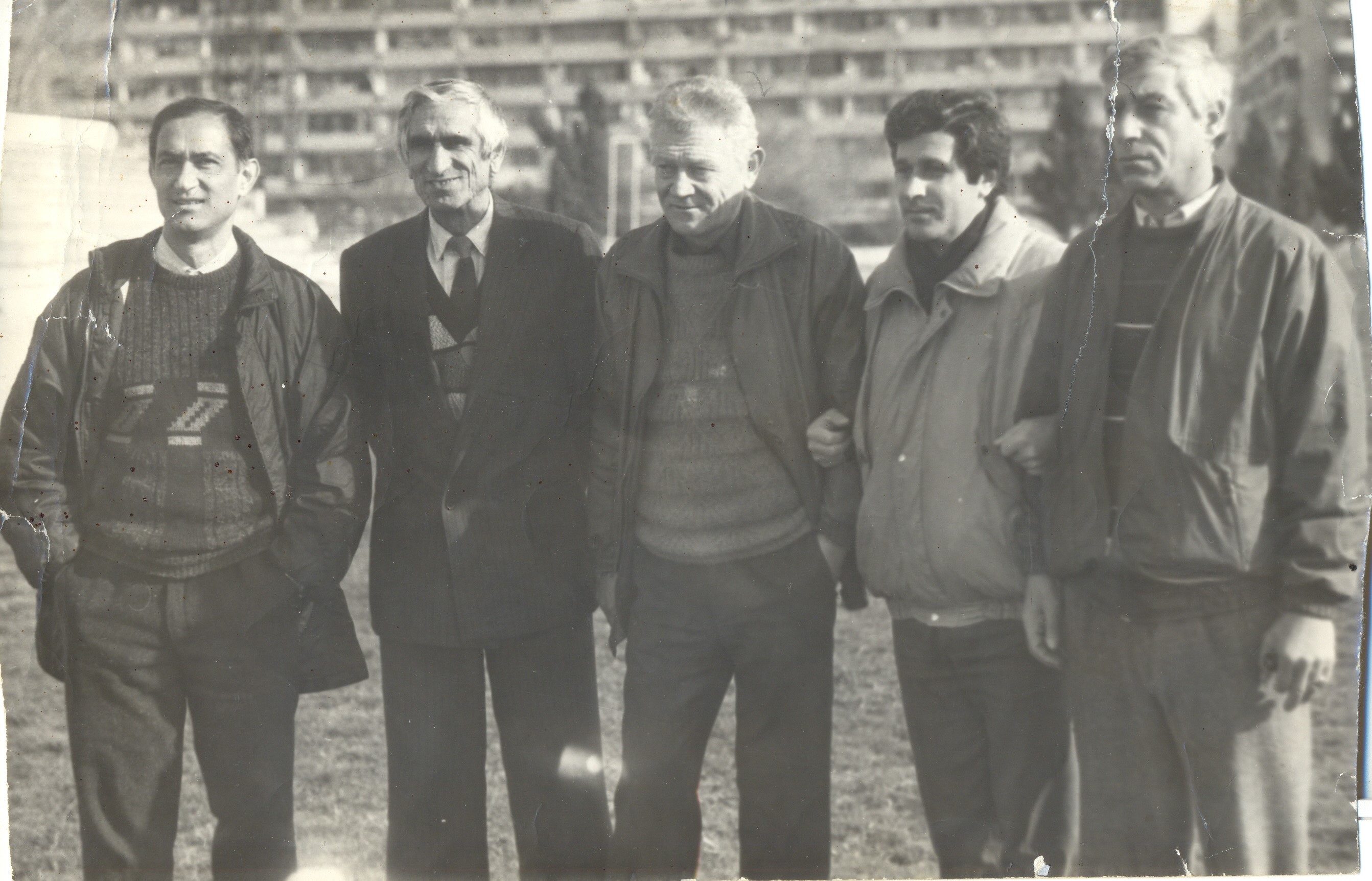
He was later sent to Burkina Faso in 1987 as a specialist. He started working here as the head coach of the country's youth national team and in a short time improved the team's performance. However, the military coup in the country left a heavy mark on Banishevsky's life. Anatoly, who was at the center of the events, was terrified. It is true that it was possible to evacuate Soviet specialists from the country, but the alarmed Anatoly was diagnosed with diabetes. After that, Banishevsky, who became bedridden, fell out of big football. His illness worsened, and on December 10, 1997, he was buried in the Alley of Honors with his eyes closed forever.
Banishevsky said in one of his interviews: "If I had to choose again, I would choose football without thinking, without hesitation, Baku, for which I am infinitely grateful, and Neftchi, with which I have been loyal in football all my life."
A year before his death, in 1996, he was awarded the Order of Glory.
